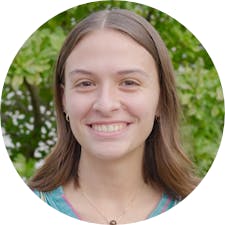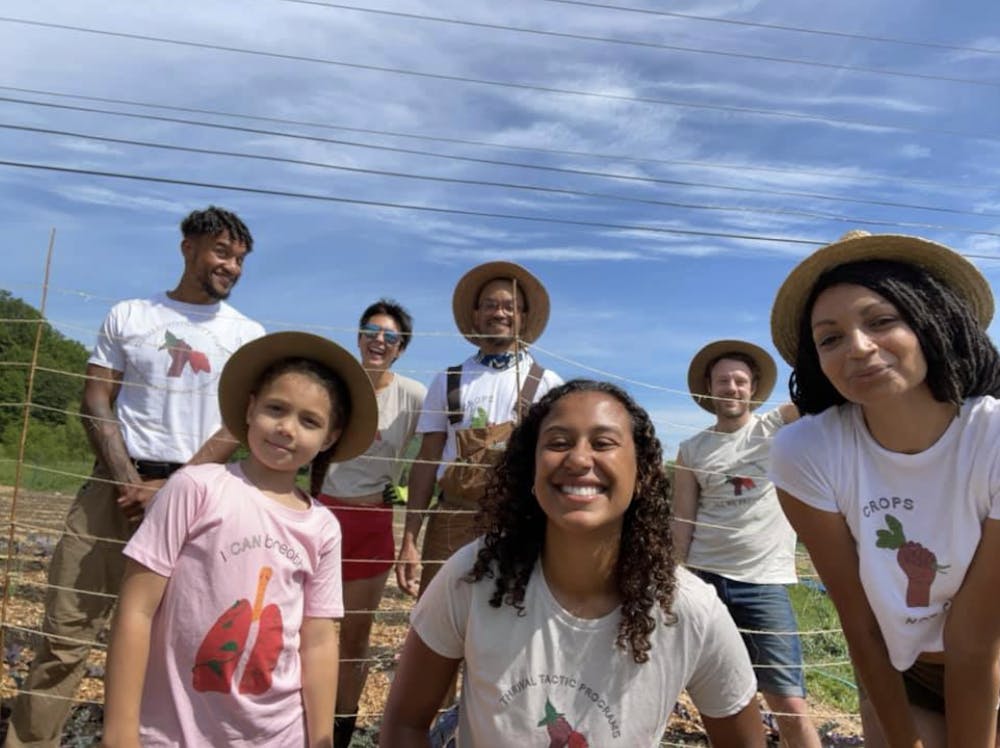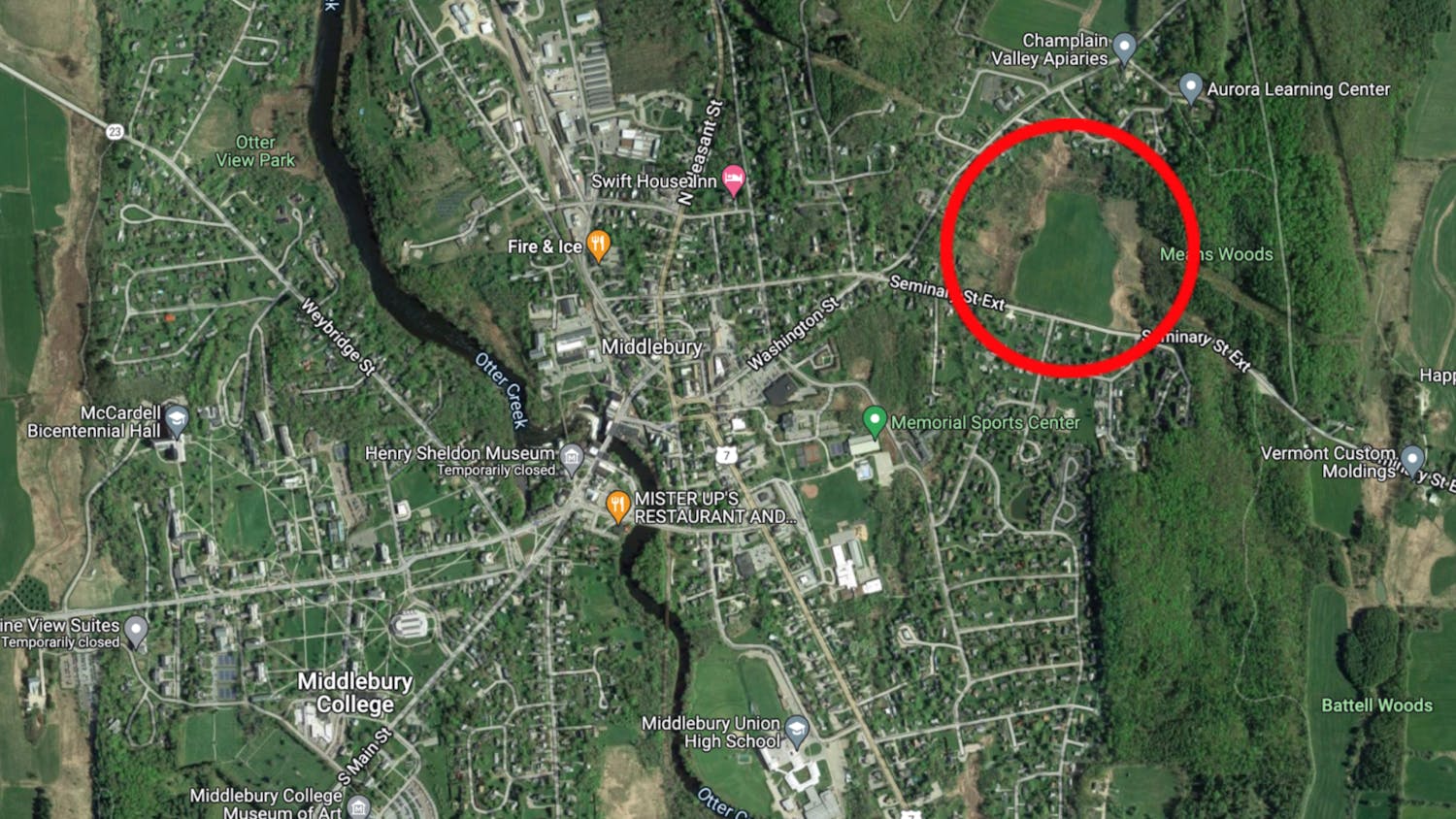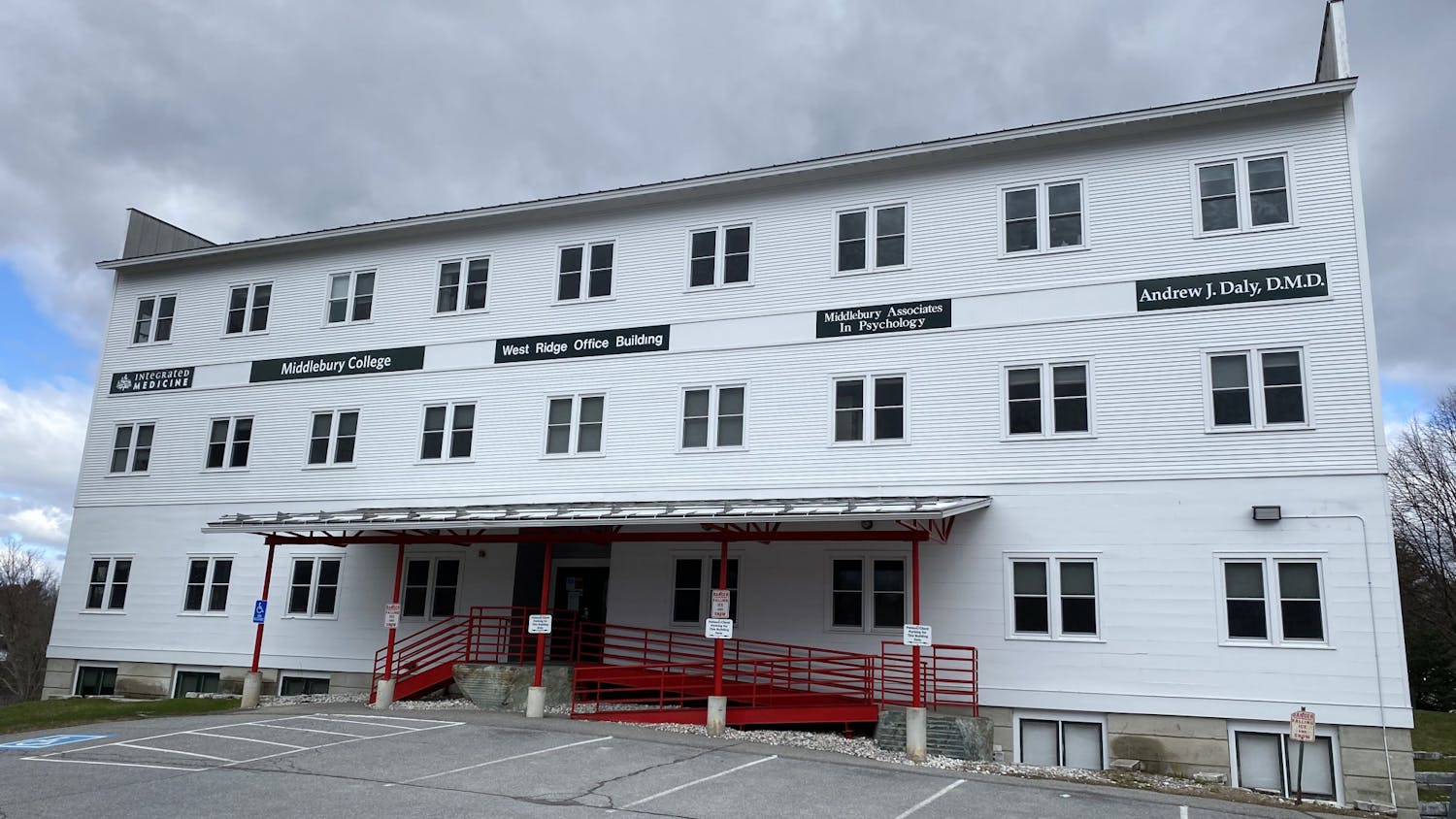For their project titled “Building for Belonging,” Molly Conover ’22, Masud Lewis ’22, Taylor Lovely ’22, Jaab Veskijkul ’22.5 and Galen von Wodtke ’22.5 worked together with SUSU CommUNITY Farm in Newfane, Vermont this spring to support the farm as it grew as well as create a guide to permits needed to build in Vermont.
SUSU is one of just 17 Black-owned farms in the state.
“The SUSU commUNITY Farm is an Afro Indigenous stewarded farm and land based healing center in Southern Vermont that elevates Vermont’s land and foodways … We do this by co-creating a life affirming and culturally relevant platform for Black, Indigenous, People of color, youth, under resourced folx, and allies to thrive and experience safety and connection while beginning to develop the tools and agency to heal from the trauma of colonization,” their website says.
Current SUSU programs include the Box of Liberation, which provides free community supported agriculture (CSA) boxes to BIPOC families in Southern Vermont for twenty weeks a year. SUSU also offers workshops such as Unbodying White Bodied Supremacy and Re-Claiming BIPOC Freedom and Joy.
The name of the farm comes from an African practice of mutual aid.
“A ‘susu’ is a commUNITY based loan/savings practice. The practice, as SUSU community farm knows it, derives from West Africa although several cultures have different variations under different names. The word ‘susu’ comes from ‘esusu,’ a Yoruba word,” according to the website. The farm chose this as their name to represent the idea that everyone brings something to a community, and everyone can receive something, too, the students explained.
SUSU’s work is grounded in spiritual practices and ancestral guidance. Their programs and internal organization are influenced by the Dagara medicine wheel. The Dagara tribe in West Africa uses this medicine wheel as their foundation of cosmology, and this wheel guides both the programming and internal organizational structure of the farm.
The organization has structured its departments into seven circles according to this wheel. For example, the fundraising and finance departments are part of the fire circle and are overseen by the Fire Keeper, who sits on the Board and acts as a treasurer.
The five Middlebury students who worked with SUSU were matched together after ranking their choices in their Environmental Studies (ES) 0401 class. Diane Munroe, the assistant director of community based learning in the ES program, is responsible for matching students with external organizations.
One goal of the project was to create a map of possible future connections between Middlebury and SUSU. This entailed the students talking to many directors at the college, explaining their relationship with SUSU, and asking if each office would be interested in also working with the farm when helpful, whether that is months or years down the line. Talks with the Anderson Freeman Center, the Franklin Environmental Center and the Scott Center for Religious life, for example, were part of this initiative.
“We really see the value in SUSU and what that can bring to Middlebury,” Lewis said. “Especially because of SUSU’s strong mission, the college struggling with DEI [Diversity, equity, and inclusion] and the demographics of Vermont at large.
Lewis and Conover pushed against the idea of making demands of certain directors.
“Allyship is also about recognizing limits, so demanding that [directors] engage in a certain way isn’t really sustainable. If anything, it could antagonize the relationship,” Lewis said. “These directors will be engaging because they’re genuinely invested, not because they have an expectation.”
The group’s hope is that, once relationships with directors and offices have been established, these groups will loop current students into projects with SUSU.
“The speed and expectations set by Middlebury aren’t how any organization works outside of Middlebury: Deadlines are set, but things come up. It’s especially not how SUSU works. Professors were understanding, but it was stressful attuning myself and moving with the speed of trust,” Lovely said. “I learned that it’s ok if things don’t work out the day you want them to. It always works out. You just have to communicate.”
Conover echoed these words and added that calibrating to SUSU’s pace was a challenge worth tackling.
“It’s the speed I want to work at, but not necessarily in line with the mindset here [at the college],” she said.
A second goal for the students was to create something of a guide to aid SUSU in navigating the permits of Act 250, Vermont’s developmental and land use law.
Lovely and von Wodtke created a bare bones structure of information, working to make the content more digestible and linking resources as needed.
This was then passed to Veskijkul, who transformed the policy breakdown into a booklet.
“I was thinking, ‘How do I make this more fun for [SUSU]?’ I started adding little men, who along the way would appear in some fun graphics. I was thinking, ‘How would I enjoy reading this?’” Veskijkul explained.
Throughout the process, he added, the group learned how hard navigating Act 250 can be, which made their efforts to make it easily understandable even more important. Veskijkul used his visual background as an ES Architecture joint major to make the pamphlet.
Von Wodtke said the guide should be useful to SUSU for the foreseeable future.
“I could foresee SUSU having a staff member, or hiring an attorney [to help with the permitting process],” he said. “We’ve done the best we can, and I think it will help. It certainly doesn’t fix the hurdles, but it will maybe make the hurdles a little smaller.”
Due to time constraints and distance — the farm is located two and a half hours south of the college — all interactions with SUSU were through Zoom. In the coming week, however, the students will travel down to the farm to work at clearing away land for upcoming building projects, and meet the founders and employees at SUSU.
Even over Zoom, however, students said SUSU’s positive energy came through. Conover, Lovely and van Wodt all mentioned that working with Jamal Arnold — the Youth, Belonging, and Place director at SUSU — was their favorite part of the project.
“The way he speaks is so different,” Lovely said. “At our very last meeting, he talked about deep trust, sincerity, moving in constant flow, no rigidity, honoring all folks, working in and with community, and always bringing it back to the land. It’s so lovely to talk to someone who’s in a business organization and has that mentality with the people and the land… it’s lovely to see, as a student, that there are people living that way.”
All of the students mentioned their gratitude for SUSU as an organization and the positivity of their experience working with the farm.
“The way they’re spiritually guided and how they want to connect with the land is so amazing,” Conover said. “One of the things I’ve learned from them is that your work, food, and family can all be connected. Life is more fulfilling if they are all connected, and you’re driven by the values you hold.”

Julia Pepper '24 (she/her) is the Senior Local Editor.
She previously served as a Local Editor. She is a Psychology major and French minor. This past spring she studied in Paris. She spent the summer interning at home in New York City, putting her journalistic cold calling skills to use at her internship doing outreach with senior citizens. In her free time she enjoys reading and petting cats.




